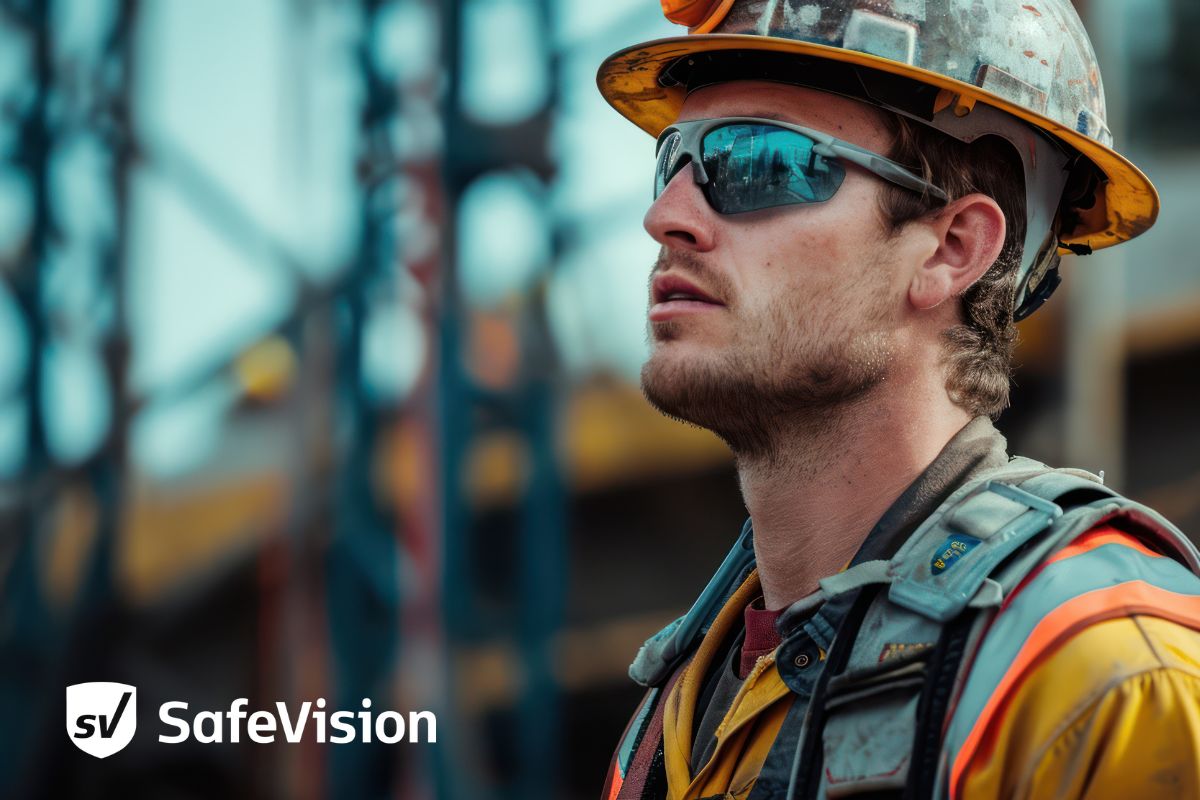Employee, Employer, Safety Glasses
Why Regular Sunglasses and Spectacles Aren’t Sufficient as Prescription Safety Glasses
In industries where workers face potential hazards to their eyes, simply wearing regular sunglasses or prescription spectacles is not enough to protect their vision. The Occupational Safety and Health Administration (OSHA) sets clear guidelines for the type of protective eyewear employees must use in such environments. Suppose you’re relying on your everyday glasses for safety. In that case, you may be putting yourself at risk—and your employer may not be in compliance with OSHA regulations.
The Difference Between Regular Glasses and Prescription Safety Glasses
At first glance, it may seem that prescription glasses or sunglasses can offer some protection, but when it comes to workplace hazards, these ordinary eyewear options fall short. Here’s why:
- Lack of Impact Resistance: Regular prescription glasses are not designed to withstand the high-impact forces in many industrial settings. The risk of flying debris or particles can be significant whether you’re working with heavy machinery, chemicals, or in construction. Only ANSI Z87.1-rated prescription safety glasses meet the necessary impact resistance standards to keep your eyes safe in such environments.
- Limited Coverage: Everyday sunglasses or spectacles often have gaps at the sides or bottom, exposing areas around your eyes to hazards. Safety glasses, however, are designed with full coverage, ensuring that dust, splashes, or flying objects are less likely to contact your eyes. Many prescription safety glasses have side shields or wrap-around designs to provide additional protection.
- Durability and Materials: Prescription safety glasses are made with durable lens materials like polycarbonate and Trivex and must meet minimum thickness requirements. These lenses are significantly more resistant to impacts than the plastic or glass used in typical eyewear. Furthermore, polycarbonate and Trivex lenses block 99.9% of UV radiation—an added benefit for outdoor workers.
- Designed for Specific Workplace Hazards:
- OSHA’s eye and face protection standards mandate selecting eyewear based on the specific hazards present in the job. For instance, workers handling chemicals need protection against liquid splashes and droplets. At the same time, welding workers require tinted lenses and full face shields to protect against harmful light radiation. Regular prescription glasses are not designed for specialized protection, leaving workers vulnerable to serious injuries.
OSHA Requirements for Prescription Safety Glasses
Wearing regular sunglasses or prescription spectacles does not meet these standards. To be compliant, prescription safety glasses must:
- Meet ANSI Z87.1 standards for impact resistance.
- Be properly fitted to the wearer.
- Provide appropriate protection against specific hazards (e.g., chemical splashes, welding arcs, etc.).
Repercussions of Using Non-Compliant Eyewear
Choosing to wear regular prescription glasses instead of OSHA-compliant prescription safety glasses can have serious consequences for both employees and employers:
- Increased Risk of Injury:
- Regular glasses may shatter on impact, causing even more harm. Employees without proper protection are at greater risk of eye injuries, which can lead to vision loss, permanent disability, or even blindness. Wearing ANSI-rated safety glasses could have prevented most of these injuries.
- Non-Compliance with OSHA Regulations:
- If an employer fails to provide proper eye protection, it risks violating OSHA’s safety standards. Inadequate protective measures leading to employee injuries can result in penalties, fines, and potential legal action.
- Financial and Legal Ramifications:
- Workplace injuries lead to lost productivity, workers’ compensation claims, and potential lawsuits. Employers who fail to comply with OSHA regulations put their workers in danger and expose themselves to significant financial liability and reputational damage.
Protect Your Vision and Stay Compliant
It’s important for employees to understand that ordinary glasses or sunglasses won’t provide adequate protection in hazardous environments. Employers must equip their workforce with OSHA-compliant prescription safety glasses to ensure both safety and legal compliance.
At SafeVision, we specialize in providing prescription safety eyewear that meets OSHA standards and offers superior protection. All our safety glasses meet the ANSI Z87.1 high-impact resistance rating. Our corporate programs make it easy for employers to ensure their teams are protected with the right gear tailored to their specific needs. Whether your employees work in manufacturing, construction, laboratories, or any environment where eye safety is critical, we have the solutions you need.

